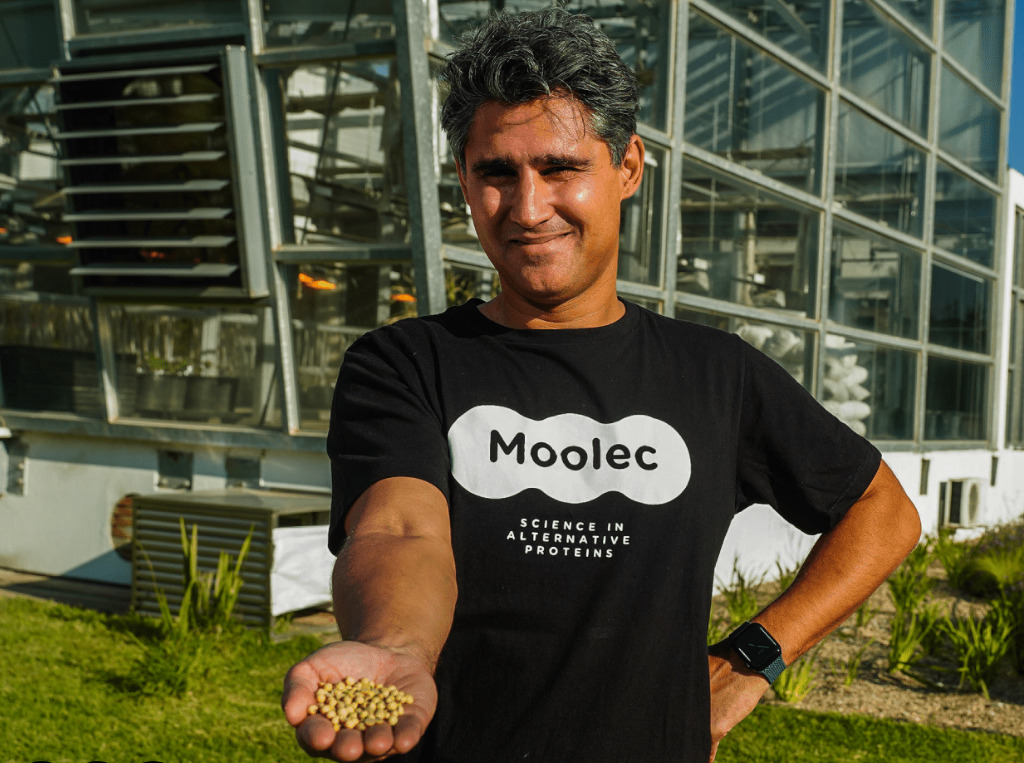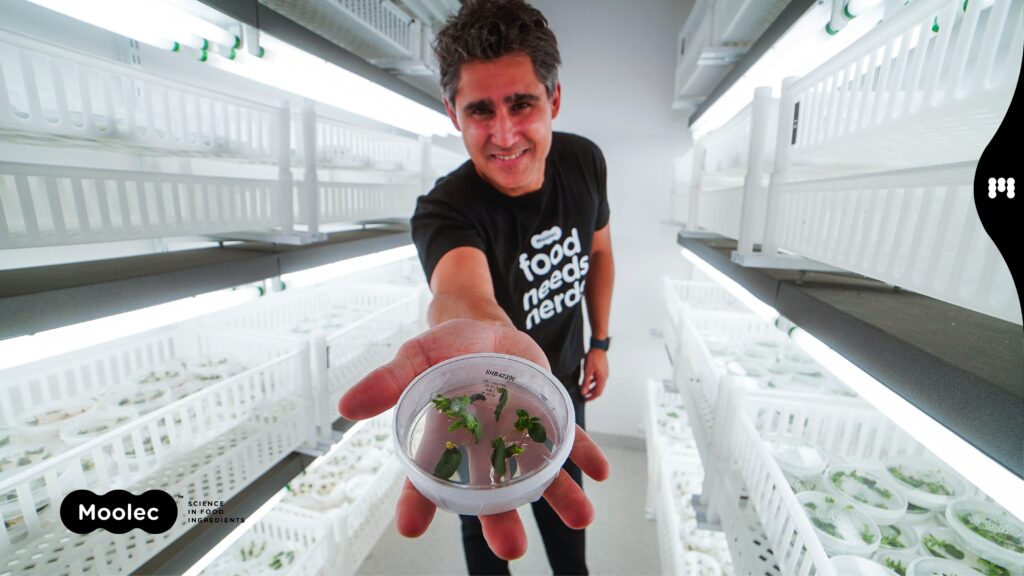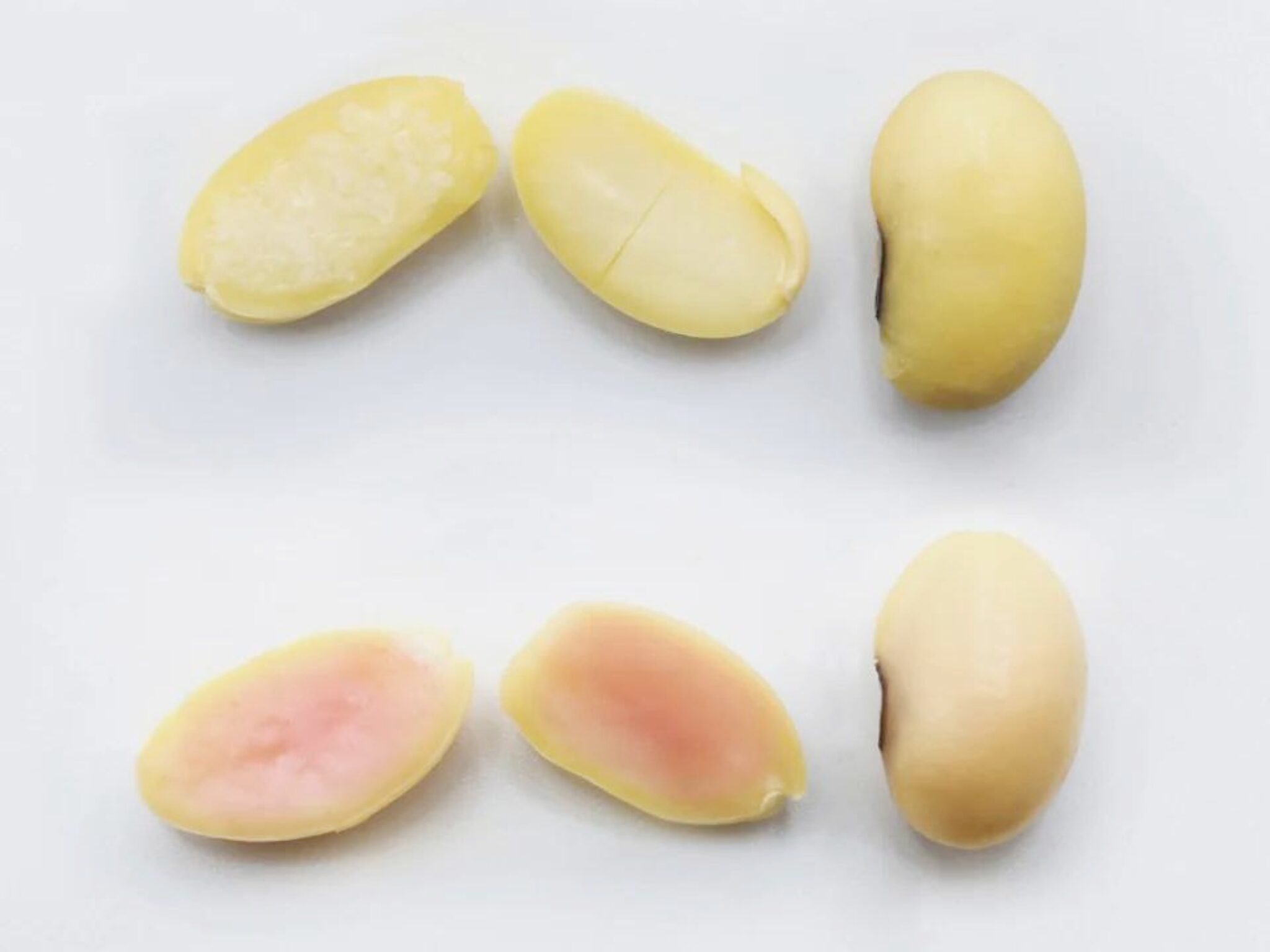5 Mins Read
Luxembourg-based Moolec Science, which uses molecular farming to grow animal proteins in plants, has earned clearance from the US Department of Agriculture for Piggy Sooy, which are soybeans containing pork proteins.
Moolec has received approval from the USDA for its ‘plant-grown’ meat proteins, with the government body stating that its genetically engineered soybeans are unlikely to pose an increased risk of pests compared to non-modified soybeans.
In its regulatory review, the USDA’s Animal and Plant Health Inspection Service (APHIS) didn’t find “any plausible pathway” by which Moolec’s Piggy Sooy brings a higher pest risk. This means it isn’t subject to the APHIS regulation that governs the movement of genetically modified organisms.
The regulatory clearance will enable the company to plant and transport Piggy Sooy soybeans without needing any permits, as is the case with non-modified ingredients, according to co-founder and CEO Gastón Paladini.
“We believe this milestone sets the stage for a revolution in the food-industrial biotech landscape, paving the way for expedited adoption of molecular farming technology by other industry players,” said co-founder and CTO Martin Salinas. “This compelling advancement signifies a stride in enhancing our operational efficiency, transforming our methods of raw material sourcing, and optimising our downstream crushing and processing operations.”
Patented tech produces pink pork soybeans

Moolec had announced the development of Piggy Sooy in June last year, as part of its Meat Replacement Program. The company is bioengineering soybeans to produce porcine myoglobin, using the plants as the ‘bioreactors’ themselves. Its seeds have achieved a high expression of pig proteins (up to 26.6% of the total soluble proteins), surpassing initial projections by fourfold.
The tech has been patented – which will aid its regulatory pathways – and produced beans that have a pink hue like pork. “This achievement opens up a precedent for the entire scientific community that is looking to achieve high levels of protein expression in seeds via molecular farming,” Amit Dhingra, Moolec’s chief science officer, said at the time.
Since then, the Nasdaq-listed company has raised $30M to fund R&D and scale-up efforts, which involved both equity, and cash and in-kind contributions, including access to the soybean inventories of Grupo Insud. Prior to this, Moolec had inked a deal with Bioceres, the Argentinian agtech firm it spun off from as a seed startup, to secure the supply of 15,000 tonnes of soybeans.
The USDA APHIS approval allows the startup to accelerate its go-to-market strategy. Moolec plans to provide food manufacturers with the functional, nutritious and eco-friendly ingredients for use in their product formulations – this involves replacing meat in sausages, burgers and the like.
Paladini remains tight-lipped about the companies Moolec is working with, but it has been in talks with ingredient processors for partnerships that could see the startup license its IP, or work with them in downstream processing to recover and commercialise the proteins using their networks. The Luxembourg-based company also has its own industrial facility in Argentina, which can crush 10,000 tonnes of soybeans annually and help it commercialise.
Molecular farming has been recognised as a more affordable and easily scalable option than cell cultivation or precision fermentation. “We are unlocking the power of plants by leveraging science to overcome climate change and global food security concerns,” Paladini outlined. Competitors like Alpine Bio (formerly Nobell Foods), Mozza, PoLoPo and IngredientWerks, Finally Foods and Miruku are all vying to get a slice of a market tipped to reach $3.5B before the end of the decade.
Moolec to launch GLA-rich oil in 2025

While the APHIS clearance is welcome news for its meat proteins, the Piggy Soybeans won’t be its first product to go to market. That honour lies with GLASO, a nutritional oil rich in GLA (an omega-6 fatty acid), which has already received the USDA’s nod and is set to come to market in 2025.
This oil is produced through a strain of safflower using a patented tech called SPC, with the same strain also helping Moolec produce a bovine chymosin protein, which is used in cheese and has also received the greenlight by APHIS. After GLASO, it will release YEAA1, an iron supplement and meat ingredient derived from yeast, and Piggy Sooy. Besides these, the company is also growing bovine myoglobin (a beef protein) in yellow peas.
But while the APHIS approval means its pork soybeans don’t pose an increased risk of pests, authorisation from other agencies – chiefly the Food and Drug Administration – will be key for commercialisation. Moolec is already in the consultation process with the food safety body, and while Paladini declined to comment on a timeline, he confirmed that “everything is on track”.
Moolec’s announcement sent its stock soaring, which was up by 121% on Monday. But when you look at long-term trends, the company’s shares have gone down from a record high of nearly $20 to under $2.50 – before this week’s announcement, it was at $1.40. Paladini ascribes this to “a mismatch between market understanding and the real opportunity”, adding that the company needed better exposure to fully explain its story.
The startup plans to sell its soy and pea proteins with the meat proteins embedded in the matrix, instead of extracting and purifying the latter. It’s doing so to “save purification costs and focus on affordability”, Paladini said. “Meat producers need both proteins (soy and pig) in their processed meat products,” he added.
It would help Moolec disrupt not just the alternative protein market, but the conventional sector too, joining a host of companies taking the blended meat approach. These products can potentially help consumers eat less meat, making their diets more climate-friendly as a result, and increasing the credence of plant proteins. Only recently, US meat purveyor Pat LaFrieda rolled out a 50Cut Burger using Mush Foods’ mycelium-beef blend, while Australia’s Harvest B ventured into the category with blended beef and lamb products, and New York City’s Björk Cafe & Bistro introduced a 50-50 Meatloaf that combined its beef mince with Havredals’ fava bean grounds.



